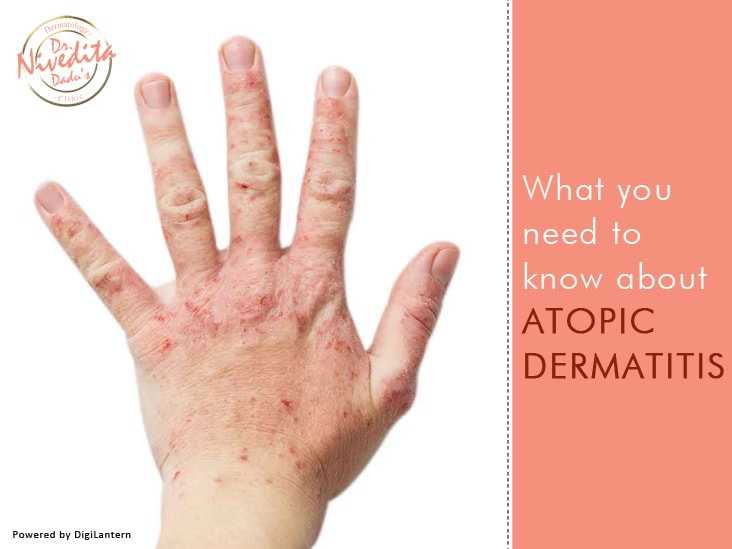Atopic dermatitis is a skin disorder that is inflammatory, relapsing, non-contagious and causes itching. In Atopic Dermatitis people experience dry, scaly skin on the entire body. The most commonly affected areas are face, neck and the bends of arms/legs where resd splotchy lesions form. Itchy rash is particularly noticeable on head, neck, inside of elbows, behind knees, and buttocks. If one of the parents is atopic, the risk of the child being atopic is most likely. The term "atopy" refers to a number of diseases, such as eczema, asthma and seasonal rhino-conjunctivitis.
What parts of the body can be involved ?
In infants: on the most exposed areas - the cheeks, forehead and chin
In children: inside folds - elbows, behind the knees, on the upper side of the feet, hands, the torso or neck.
In adults: the face, neck and hands.
Some useful tips for atopic patients --
-
Clothing should be soft next to the skin. Cotton is comfortable and can be layered in the winter. Wool products should be avoided.
-
Cool temperatures, particularly at night, are helpful because sweating causes irritation and itch.
-
A humidifier (cool mist) prevents excess drying and should be used in both winter, when the heating dries the atmosphere, and in the summer, when air conditioning absorbs the moisture from the air.
-
Clothes should be washed in a mild detergent with no bleach or fabric softener.
-
Certain foods can trigger flare-ups in sensitive children. The main foods are: cow's milk, eggs, peanuts, wheat flour, fish , shrimp, Kiwi, nuts and sesame.
-
Depending on the climate, patients usually benefit from lukewarm baths followed by the application of a moisturiser such as white petrolatum. The oil keeps the water on the skin and prevents evaporation to the outside environment and seals in moisture .
-
Probiotics have been recommended as a therapeutic option for the treatment of AD. The rationale for their use is that bacterial products may induce an immune response and therefore inhibit the development of allergic IgE antibody production.
-
Flares may be associated with seasonal changes, stress, activity, throat infection, or contact allergy.
-
A child who suffers from atopic eczema, can swim, but chlorine and salt may irritate his or her skin. After swimming, the child should rinse off, dry (without rubbing) and apply moisturising cream to the entire body.
-
Can play sports, however, sweat causes scratching.
-
Animals with fur or hair should not sleep in the child's bed or on the sofa.
-
The house must be vacuumed at least three times per week.
Treatment : Antihistamines, moisturisers and calcineurin inhibitors which are non steroidal can be given to relieve you of the symptoms and keep them at bay. Topical steroids are given for quick relief.

